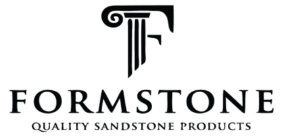SEO optimises a website to rank higher on search engine results pages (SERPs) for relevant keywords. Increasing your visibility and ranking can increase the number of visitors to your website, driving traffic and sales.
SEO is a complex and constantly changing field. It can be frustrating and time-consuming, but it can also generate a high return on investment.
Keywords
 Today’s consumers rely on search engines like Google to help them find the information they need, meaning your company needs to appear in search engine results for keywords and phrases relevant to your product or service. The process of search engine optimisation (SEO) helps your website rank higher in these results, which can lead to more traffic and new customers.
Today’s consumers rely on search engines like Google to help them find the information they need, meaning your company needs to appear in search engine results for keywords and phrases relevant to your product or service. The process of search engine optimisation (SEO) helps your website rank higher in these results, which can lead to more traffic and new customers.
SEO is a long-term strategy that involves several steps, including keyword research and content optimisation. First, you’ll need to identify keywords most relevant to your business and create content that answers their questions and satisfies their needs.
You can conduct this research manually through Google searches or use tools that provide data and keyword suggestions. These include Google Search Console, Ahrefs Keywords Explorer and even Google Ads’ Keyword Planner.
One way to do this is to identify long-tail keywords. These keywords are more specific than a typical search term and are often easier to rank for. Typically, these are the keywords you’ll want to focus on when creating your page or blog post.
Once you’ve identified your long-tail keywords, you must ensure you’re targeting them correctly on your site. It includes ensuring they are in your web page’s title, meta tags and content. In addition, you’ll also need to make sure that they’re present in the filename and alt text of your images.
Another vital part of keyword research is identifying how competitors use keywords. You can do this with tools such as SpyFu, which can help you remember all the keywords your competitors are targeting that you’re not.
While keywords are essential to SEO, they can be much more complicated than you think. There are many factors to consider, such as the search volume of each term and how competitive it is. Therefore, it’s best to do your keyword research thoroughly and only go after keywords you have a shot at ranking for and bringing traffic to your site.
On-page optimisation
Search engine optimisation (SEO) optimises your website to increase its visibility and traffic in search engines. It involves a variety of tactics, including on-page and off-page SEO.
On-page SEO optimises a web page for keywords to improve search visibility and traffic. It involves aligning page-specific elements like title tags, headings, content and internal links with relevant keywords.
Using on-page SEO effectively is crucial to the success of your search marketing campaign because it allows search engines to understand what your site is about and where to place you in the rankings. However, it’s also important to remember that Google constantly changes its algorithm and that you should be flexible with your SEO strategies.
The first step in on-page SEO is to create high-quality, engaging content that matches user intent and reflects your brand’s personality. To do this, perform keyword research and use specific keyword phrase components in your content.
Another crucial on-page SEO component is image optimisation, which allows you to include additional keywords in your images. You should also ensure your photos are correctly tagged and have relevant alt text.
On-page SEO is essential to a successful content marketing campaign and should be included in every SEO strategy. However, it can be unclear for beginner search marketers because there are many factors to consider, and it’s not always clear what will impact your ranking best. That’s why conducting a thorough on-page SEO Adelaide audit and adjusting your site as needed is vital.
Off-page optimisation
Off-page SEO Adelaide is the techniques used outside your website to improve its ranking in search engine results pages (SERPs). These off-site activities aim to make your site more visible to potential customers and increase traffic.
Off-page optimisation is essential to any website that wants to rank high on SERPs. These tactics include social media marketing, influencer marketing, and content marketing.
There are many ways to build links, including commenting on relevant blogs and forums, participating in social media discussions, writing guest posts for other websites, and more. The most important thing is to be proactive in your search for link opportunities.
Unlinked brand mentions are essential to off-page SEO because they allow another site to vouch for your business and link to your website. They also help you establish trust with consumers and search engines.
These types of backlinks are usually natural or earned. They can include editorial references from publishers, consumer mentions, or even referrals from your current clients. They’re all great ways to build brand recognition and create new backlinks for your site.
Aside from building backlinks, off-page SEO includes content marketing, brand building, and influencer marketing strategies. These strategies are effective for new and established businesses and can help you enter the competition.
Off-page SEO is not just about creating valuable backlinks – it’s about doing everything possible to build trust and authority in the eyes of Google and other search engines. It’s also great to boost your brand image and increase sales.
